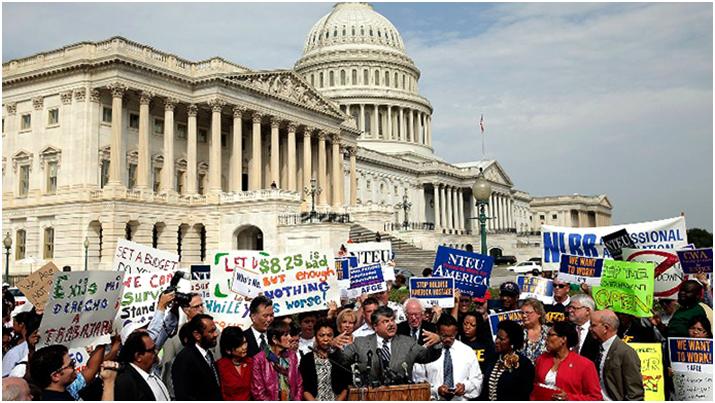Last Updated on Mar 5, 2020 by James W
Having started out as a debate over the implementation of Affordable Care Act, the row between Democrats and Republicans in the House of Representatives and the Senate escalated to such a point that the US government has gone into partial shutdown. The need for both sides to reach a compromise over the budget and healthcare is pressing, as the threat of debt default looms.
The debate between both sides moved on to the wider issue of the country’s debt, which currently stands at $16.7 trillion. Should the shutdown continue beyond October 17, then it’s likely that the US will default on its debt, causing serious levels of panic for the country and the wider world. As for signs of a solution, recent talks have been unproductive, although both parties are willing to listen.
A major sticking point for the Republicans, whose stubbornness led to the shutdown, is the Affordable Care Act, dubbed as ‘Obamacare’ by its critics. “All we’re asking for here is a discussion and fairness for the American people under Obamacare”,said Republican House Speaker John Boehner, one of the leading figures in the rebellion.
Teetering on the brink
Having gone on for more than a week, thousands of government employees have been forced to take unpaid leave until the shutdown ends, while vital services including schools and welfare offices have closed their doors for the time being. The human cost as well as the financial damage being caused means a solution is needed sooner rather than later.
“There’s a much bigger issue to address in just a few days’ time – the raising of the US debt ceiling. That’s when the stop-gap measures agreed late last year are set to run their course and the $16.7 trillion borrowing limit will be exhausted”, “, said Joshua Raymond, chief marketing strategist at – group cityindex.co.uk.

“Both parties have had one eye on the debt ceiling talks all along. If they were to show any sign of concession now, that would weaken their position significantly with the debt ceiling negotiations.
“There is the possibility that Obama would use the 14th Amendment to raise the debt ceiling himself without approval from Congress but this potential remains open for debate on whether the 14th gives Obama the power to do so”, he added.
Raising the ceiling
To avoid default, the government have to try and raise the debt ceiling from its current level. This will give them more room for manoeuvre and would help to ease the market’s anxiety in the short-term.
Mr Raymond added: “If the US fails to raise the debt ceiling or pass temporary terms that allow the US government to continue to borrowing, the US may be forced into a default scenario which would likely have serious consequences for both market confidence and the US credit rating.
“Cast your minds back to August 2011 when a similar scenario played out and the S&P cut their top notch rating for the US. This situation remains fresh in the memory of investors.So whilst the partial US government shutdown is concerning, investors need to watch the situation carefully for clues as to how debt ceiling negotiations will progress.”




